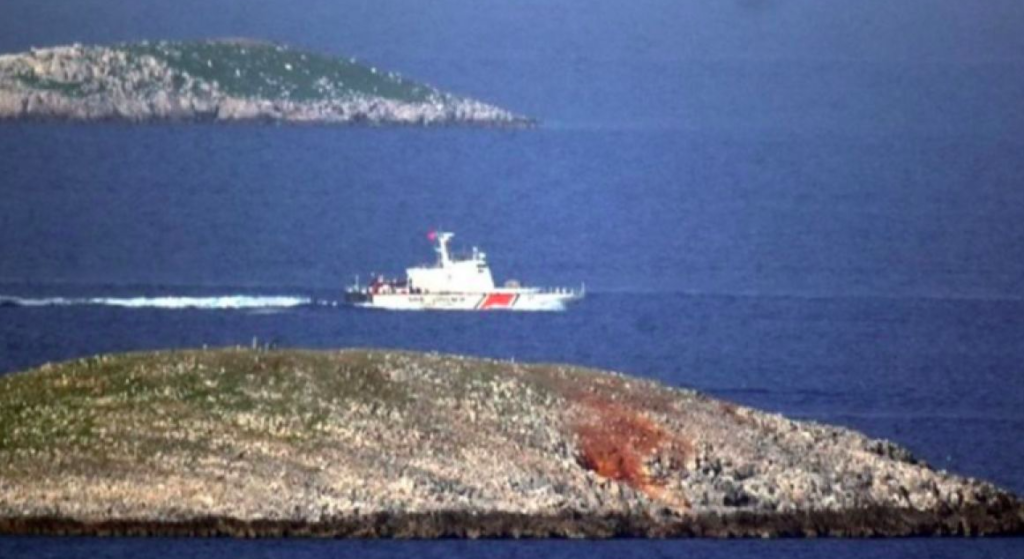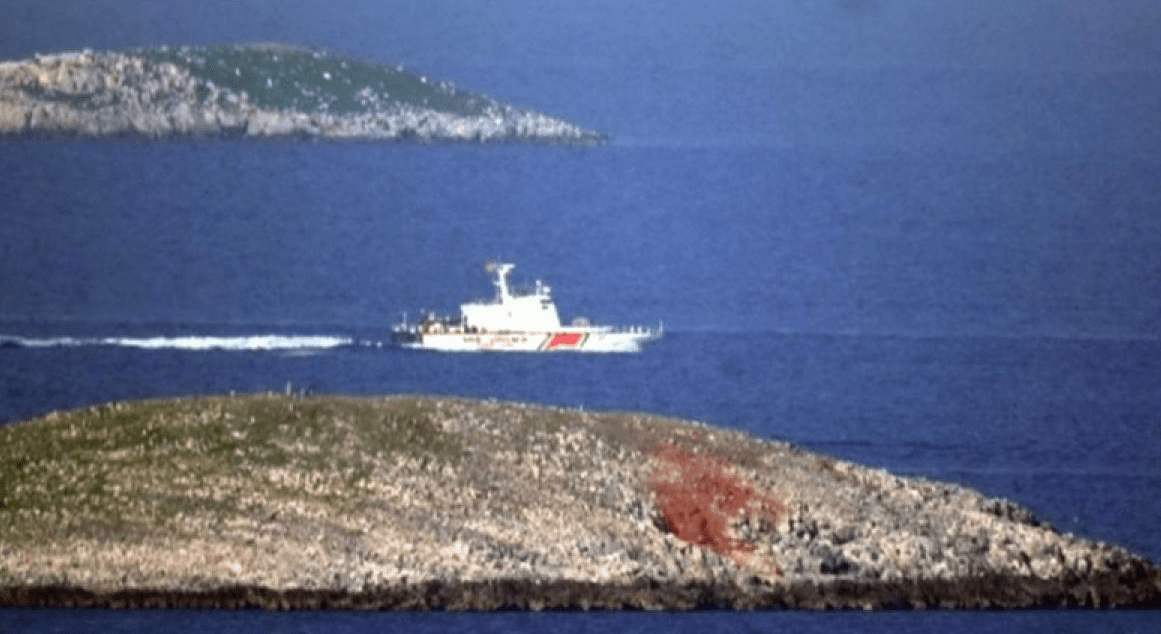
by Aggelos Skordas
In light of the increasing Turkish provocations in the Aegean Sea that dramatically escalated on Monday night, when the Turkish patrol boat “Umut” rammed the off-shore vessel “Gavdos” of the Hellenic Coastguard after entering Greek territorial waters, Prime Minister Alexis Tsipras is scheduled to visit the Ministry of Shipping and Island Policy on Thursday morning. In what is seen as a highly symbolic gesture and a message to Turkey, Tsipras will hold meetings with the Greek Coastguard’s leadership and address its personnel.
Earlier on Wednesday, junior coalition partner leader and National Defense Minister, Panos Kammenos, on the sidelines of NATO Defense Ministers meeting in Brussels, slammed Ankara characterising its behavior as “provocative”. As he said, the Turkish provocations in the Aegean Sea “go beyond tolerable levels”, as Turkey is not only violating Greece’s territorial waters but it is also breaching the sovereignty of the European Union. It is reminded that the Greek vessel rammed by the Turkish patrol vessel had been co-financed by the common European border and coast guard.
“I briefed the NATO ministers about Turkey’s behavior in the last two days and the two events, chiefly in the region of the Imia islets and the tension, the verbal tension, generated by the announcements made by Turkish President Erdogan and Turkish officials”, Kammenos explained in an interview with state-run AMNA news agency, while declaring that “the Imia islets are Greek”: “The Greek Coastguard and Navy are there and we will not back down on issues of national sovereignty for any reason. We ask our allies in the European Union and NATO to adopt a clear stance.”

Erdogan advisor: Greece is “like a fly picking a fight with a giant”
Despite the phone conversation held between Tsipras and his Turkish counterpart Binali Yildirim, during which the Greek Premier underlined that incidents like the one which occurred on Monday “directly undermine the relations between the two neighbouring countries and violate international laws”, the chief advisor of Turkish President Recep Tayyip Erdogan has compared Greece with a fly. Specifically, as Yigit Bulut said in an interview with TRT channel, in case the tension between the two countries is escalated Turkey’s response will be tough, adding that Greece is no match for Turkey’s might: “It would be like a fly picking a fight with a giant”, he characteristically said while warning that the consequences for Greece would be terrible. Furthermore, Bulut accused the United States for having a plan to make Greece attack Turkey while the second is engaged in military operations in the Kurdish-majority Afrin Region of northern Syria. This was not the first provocative comments Erdogan’s chief advisor made. Earlier this month he warned that Turkey “will break the arms and legs of any officers, of the Prime Minister or of any minister who dares to step onto Imia in the Aegean”.
In a completely different tone, Yildirim told Turkish media that refraining from tensions would be “better” for bilateral ties, while adding that the Aegean Sea should be a sea of friendship between Greece and Turkey: “We explicitly expressed to him [Greek Prime Minister Alexis Tsipras] that staying away from tensions will be better, with regards to relations between the two countries.” Furthermore, he said that “Turkey gave a response to Greek violations which started with the Kardak [Imia] islets”. According to Greek media, though, when the Turkish Premier and Tsipras held a phone conversation on Tuesday, he argued that Monday’s incident was not the result of a deliberate action, proving that he is using a completely different language when addressing his country’s media than when addressing his Greek counterpart.
On his behalf, Greek government spokesperson, Dimitris Tzanakopoulos, on Wednesday told public radio ERA that the status quo in the Aegean Sea is totally clear: “There is no argument on this according to international law. Whatever move Turkey undertakes -which we are not expecting will occur, we are working towards avoiding this- will be addressed not only by the Greek side but also by the European Union and by all the international organizations. There should be no doubt whatsoever about this.”
During a press conference on Wednesday, European Commission President Jean-Claude Juncker, asked to comment about the recent tension between Turkey, Greece and Cyprus, declared himself “entirely against Turkey’s stance”. Only hours after the incident off the Imia islets, on Tuesday, the European Commission sent a warning to Ankara on abstaining from “negative statements that damage good-neighbor relations” and from “any friction, threat or action against a European Union member state that will disturb relations of good neighbourliness and the peaceful resolution of differences”.
Τhe uninhabited islets of Imia in January 1996 brought the two countries to the brink of war, known as the Imia Crisis, and have since been the scene of numerous “hot” incidents, with Turkish officials repeatedly disputing the Greek sovereignty over numerous islands and islets of the Aegean Sea, while the country’s naval presence in the region is increasing.

